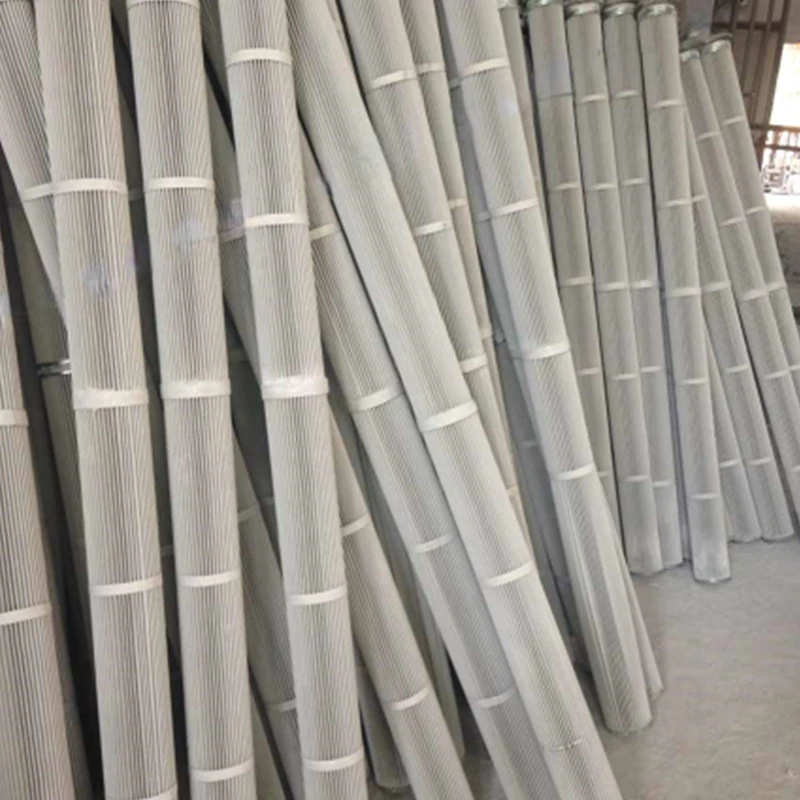 Tel:
+8618931101301
Tel:
+8618931101301
8 月 . 14, 2024 14:04 Back to list
Enhancing Performance and Longevity of Gas Turbines Through Effective Inlet Filtration Solutions
The Importance of Gas Turbine Inlet Filters
Gas turbines are essential components in the power generation and aerospace industries, known for their efficiency and ability to generate significant amounts of energy. However, the performance and longevity of gas turbines are heavily influenced by the quality of air that enters the system. This is where gas turbine inlet filters come into play. These filters serve a critical role in maintaining the operational integrity of gas turbines by ensuring that the air entering the turbine is clean and free from contaminants.
Gas turbine inlet filters are designed to remove particulates, dust, and other airborne contaminants that can cause damage to the turbine components. Contaminants can lead to erosion of blades, fouling of combustors, and overall reduced efficiency. By employing high-quality filters, operators can significantly extend the lifespan of their gas turbines and improve performance efficiency. Typically, these filters are made from various materials, including fiberglass, synthetic fibers, and foam, to provide effective filtration while allowing maximum airflow.
One of the most significant threats to gas turbines is particulate matter that can be entrained in the air, especially in industrial settings or areas with high dust levels. The challenge lies in balancing airflow and filtration efficiency. If the filter is too restrictive, it can impede airflow, leading to reduced turbine performance. Conversely, if it is not restrictive enough, harmful particles can enter the turbine, leading to wear and tear. Therefore, selecting the appropriate filtration system is critical for optimizing turbine performance.
gas turbine inlet filter

Modern gas turbine inlet filters use advanced technologies to enhance their effectiveness
. For instance, some filters employ electrostatic principles to attract and capture particles, while others utilize pleated designs to increase the surface area available for filtering. Additionally, there are options for self-cleaning filters that can reduce maintenance downtime and enhance the overall reliability of the gas turbine system. The development of nanofiber filtration technology has also shown promise in capturing smaller particles with minimal airflow restriction.Maintenance of gas turbine inlet filters is crucial for ensuring their effectiveness. Routine inspections and replacements are necessary to prevent filter saturation, which can lead to increased pressure drops and decreased performance. Operators must develop a comprehensive maintenance schedule that includes monitoring filter differential pressure, which indicates how much resistance the filter is creating against incoming air. Regularly checking and replacing filters not only aids in maintaining the health of the turbine but also contributes to overall operational efficiency.
The environmental impact of gas turbine operations cannot be overlooked. In light of increasing concerns regarding air quality and emissions, proper filtration becomes even more vital. Gas turbine inlet filters contribute to reducing emissions by ensuring that the combustion process runs efficiently, utilizing the correct air-to-fuel ratios. Additionally, clean air entering the turbine helps minimize the production of pollutants, aligning with global efforts for sustainability and cleaner energy.
In conclusion, gas turbine inlet filters are indispensable in maximizing the performance and lifespan of gas turbines. By providing a clean airflow environment, these filters protect turbine components from harmful contaminants, resulting in improved efficiency and reduced maintenance costs. As technology continues to advance, the development of more effective and efficient filtration systems will further enhance the reliability and sustainability of gas turbines in various applications. The importance of investing in high-quality gas turbine inlet filters cannot be overstated, as they are crucial for the efficient and environmentally responsible operation of gas turbines in today’s energy landscape.
-
How to choose a high-efficiency air filter? Here comes a professional guideNewsOct.21,2024
-
Air filter: multi-field application, protecting fresh airNewsOct.17,2024
-
Carbon air filter: a green guard to protect air qualityNewsOct.16,2024
-
Can activated carbon completely remove indoor odors and pollutants in air purification?NewsOct.14,2024
-
How to filter air efficiently and ensure indoor air quality?NewsOct.12,2024
-
Activated carbon filter: the invisible guard of clean water lifeNewsOct.11,2024

 Email:
Email:





